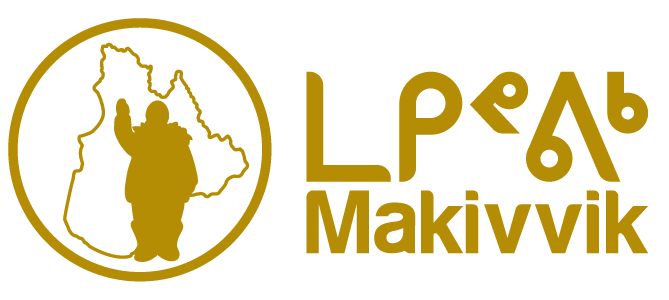
©CAROLINE FORTIN
Submitted by the Kuujjuaq Veterinary Pilot Project
Dogs are an important issue in Nunavik and a concern in every northern community.
The Kuujjuamiut Facebook Page, for example, is a page where Kuujjuamiut can read information on the community but is also a page where people can express their concerns. One of the recurring subjects is dogs: dog bites, loose dogs, if there is a veterinarian in town, etc. This problem has been real for many, many years. Although attempts at resolving different aspects of the dog situation are still being made, the issue remains.
The Faculty of Veterinary Medicine of Université de Montréal has been present in the North for several years working on different issues related to dogs. They helped with vaccination clinics, rabies, basic care and information. They also conducted several studies in Kuujjuaq, interviewing people to assess what the population consider the main problems.
Overall, more than 30 specific problems were raised, based on interviews of 67 participants. A small committee composed of members of local organizations (Northern Village of Kuujjuaq, Landholding, Makivvik, KRG, Kuujjuamiut, Health Board), mushers, local vaccinators, and Université de Montréal, sat down together to discuss solutions. There was one that seemed to address many issues at the same time: having a local veterinarian in Kuujjuaq. Unfortunately, having a clinic and a permanent vet in Kuujjuaq would be expensive and was almost unimaginable at the time. Other solutions, complementary to the veterinary services idea, were the sharing of information and education.
From this seed meeting grew the Kuujjuaq Veterinary Pilot Project. From January to July, a small group of passionate volunteers worked on finding funding. Société Plan Nord agreed to fund part of the project (mainly to buy all equipment to start a clinic) and all local organizations mentioned above, plus KMHB, contributed to the project with the Northern Village of Kuujjuaq overseeing it. The dream became reality.

Kuujjuaq before the 2020 Ivakaak Dog Sled Race. The dog managed to do the race.
©CAROLINE FORTIN
During this trial period, Dr. Caroline Fortin was hired. It was a huge challenge to set something up from scratch, as needs had to be determined and everything created from very little. Nonetheless, the results of this six-month period were tremendous, surpassing all expectations. It was proof that there is a real need for a veterinarian in Kuujjuaq.
Dr. Fortin delivered services to more than 130 animals, including five hospitalizations. She also treated and healed sled dogs from many mushers in Kuujjuaq, and a few from other communities participating in Ivakkak. Vaccinations against rabies were done diligently, which contributed significantly to public health and safety.
The Kuujjuaq Veterinary Pilot Project funding came to an end in July 2020. However, because of all the realizations made, the local organizations agreed to continue supporting the project with Makivvik as an important contributor, and the Université de Montréal as an additional partner. Dr. Nadeige Giguère was hired in August 2020.
Now that the basics of the veterinary services are in place, new objectives are being planned for the rest of this year and the next.
A vet delivers health services to animals, but their job goes beyond that. This year, more effort is going to be directed into sharing information and education. There is a serious need to better understand dog behaviour, diseases transmitted to humans, and how to prevent them. Prevention is the key to avoiding incidents, and one of the vet’s tasks will be to communicate relevant information about dogs.
In association with the Health Board and Université de Montréal, the risks of dogs associated to human health will be discussed. Rabies is a disease present in the North, and it must be taken seriously. It can be prevented by vaccinating animals, and rabies transmission can be limited by learning to read dogs’ behaviour in order to avoid bites. A lot of information will be transmitted via the Kuujjuaq Vet Facebook Page, and hopefully on Kuujjuamiut and the radio.

Another important aspect of the educational program will be oriented towards kids’ education. Fun activities will be developed for children to better understand dogs and the traditional way of living with them.
In the meantime, vet services are offered in Kuujjuaq at a low cost (about 60 per cent less than in the South). There is a mobile clinic where the vet goes from house to house.
KMHB has offered a trailer that will eventually be renovated and serve as a clinic, and equipment was acquired with Plan Nord funding. Hopefully within the next year the clinic will be ready to do certain surgeries (including spaying and neutering).
One important contribution by Université de Montréal is to provide evidence for the success of this program in reducing the health issues related to dogs, while promoting the positives about having one. Such proof will help in securing funding for the program to continue.
There is still much to do for the Kuujjuaq project to become a full-service vet clinic and answer all concerns related to dogs. However, it is a good example of the success of perseverance and teamwork.
People in Kuujjuaq determined the needs in terms of dog issues, and local organizations gave generous amounts of time for the project to become a reality.
For now, all the project volunteers are really proud of the outcome and hopefully the project can grow larger and include training of Nunavimmiut that would perhaps be interested careers in veterinary medicine.
Kuujjuamiut can make a vet appointment by leaving a message on the Kuujjuaq Vet Facebook page, or by calling the Northern Village of Kuujjuaq (819-964-2943).
Hopefully, this project can be extended to other communities in the future. Until this happens, the Emergency Line of the Université de Montréal is still valid.




